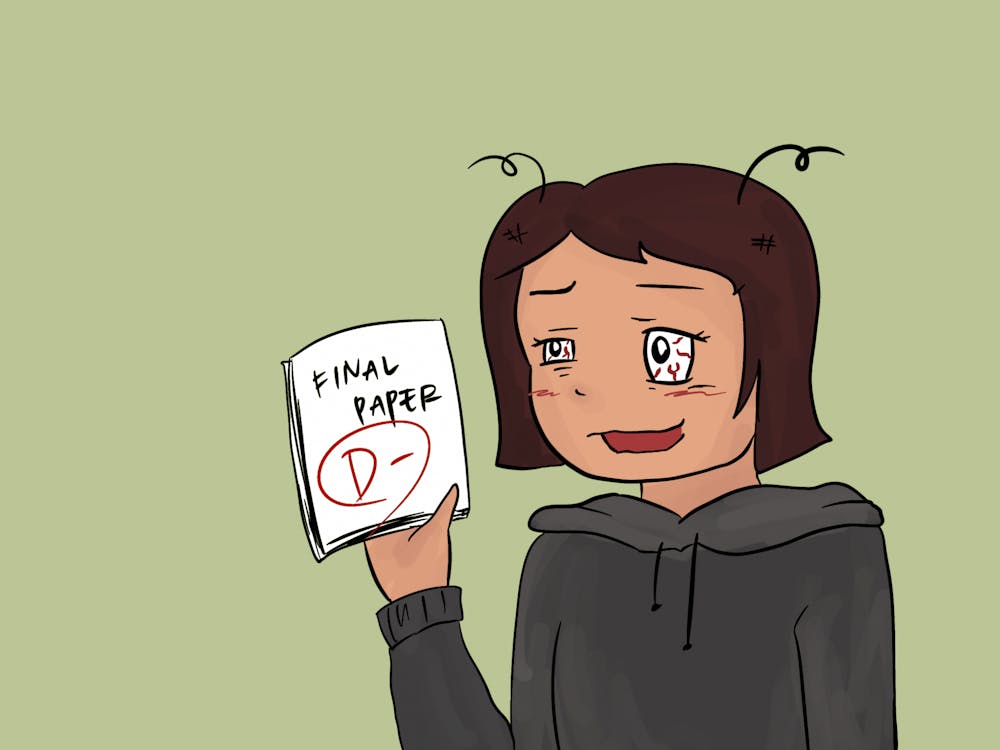
It feels like Trisha Parayil will be in school forever. Even during her two gap years between graduating from Hopkins and applying to medical school, Parayil opted to teach high school science in Bridgeport, Conn. through Teach for America. Outside of lab experiments and grading quizzes, Parayil is also working on getting a masters from the School of Education.
As a high school science teacher, Parayil teaches a diverse group of students, some of whom never plan to think about Avogadro’s number or Planck’s constant after they graduate. In an interview with The News-Letter, Parayil admitted that she gets the question “Why do we need to know this?” quite a lot. Luckily, Parayil has answered this question multiple times for herself while completing her medical school prerequisites at Hopkins.
Most medical schools in the U.S. require applicants, regardless of their undergraduate degree, to take a heavy sequence of science classes before enrolling, which includes organic chemistry, physics and statistics. Due to their large class sizes and difficult material, these courses have earned the intimidating moniker of “weed-out classes” in colleges across the country. In theory, weed-out classes whittle down a large group of hopeful freshmen pre-meds into a smaller group of upperclassmen who actually submit an application.

Parayil agrees that she experienced her fair share of difficulties making it through Hopkins courses. However, she ultimately persevered — she is applying to medical school, after all. She attributes part of her success to reaching out for help from upperclassmen and forming study groups with friends.
However, Parayil asserted that her growth mindset was the greatest predictor of her success.
“I think it’s funny, this whole concept of weed-out classes,” she said. “Knowing that a class is a weed-out class but still having the confidence to take on that challenge is key... It’s a challenge, not a barrier.”
At Hopkins, Parayil initially considered eschewing medical school for the research track. However, her clinical experiences and exposure to social disparities as a teacher solidified her interest in examining the social determinants of health. For Parayil, becoming a doctor offers the unique opportunity to have an integral role in a person’s life both inside and outside the clinic.
In being conscious of the social determinants of health, though, Parayil also notes that not every student may come to Hopkins equipped with a growth mindset for reasons outside of their control.
“[Growing up], I was just surrounded everywhere — at home, in school, on my sports teams after school — by adults who 110% had confidence in me, believed that I could really do anything I put my mind to. They helped me envision a bright future for myself,” she said. “Some of the kids who I teach don’t have that necessarily.”
Indeed, what you think may be more important than what you know. One study published in Science Advances noted that stressful courses can often lead students into a negative spiral of defensiveness and isolation, which is only detrimental to their success. However, when the researchers directed some students in an introductory science, technology and math (STEM) weed-out class to complete an exercise in which they affirmed their values outside of academic success, these students were more likely to continue on the STEM track. The researchers attributed this to the size of the student’s social network within the course. However, the study did not acknowledge if disparities in social networks at the beginning of the course affected student success.
Other studies have noted that women are more likely than men to leave a STEM major in response to failing a course, possibly because women are more likely to experience imposter syndrome. Another study noted that first-generation students are less likely to receive good grades in introductory STEM courses than continuing-generation students. However, even first-generation students who received all As in their introductory courses were less likely to continue in STEM than their continuing-generation counterparts with the same grades. This suggests that structural disparities may play a role in student confidence beyond what goes in the grade book.
Sri Polkampally, a Hopkins senior and study consultant, recalled her experience of taking physics at Hopkins without taking the subject before in high school. For Polkampally, taking the course alongside students with strong science backgrounds from high school impacted her confidence.
She estimates that she ended up spending more than eleven hours a week that semester to get the grade she wanted. Polkampally would not recommend her study methods to others.
“I think it did kind of consume my life,” she said. “I was so obsessed with doing well in that class, I put in an insane amount of hours.”
Polkampally noted both in her work as a study consultant and in her experience as a student that introductory courses could be better for students coming in without strong backgrounds from high school. She suggested that professors offer special tutorial sessions or office hours for students who might need more context or background knowledge coming into lecture.
When asked how she advised students and friends struggling with difficult classes and imposter syndrome, Polkampally noted the importance of celebrating small victories. For example, even if one of her consultees doesn’t get the grade they want on a test, their success in turning in an essay on time or completing a problem set is still worth acknowledging.
Secondly, Polkampally advises students to push any feelings that they “don’t belong” in a field they love to the curb.
“Hopkins picked you for a reason. This is not an accident. This means you’re brilliant, you’re hardworking and you’re passionate,” she said.
Trisha Parayil is a former Science &Technology editor for The News-Letter. She did not contribute to the reporting, writing or editing of this article.





